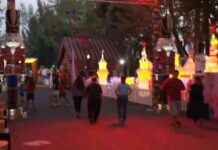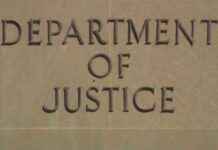The Supreme Court of Russia yesterday held a “secret” and closed-door session in which, without the presence of any defense, it declared the “international LGTB social movement” “extremist”. Activists and human rights organizations fear that the measure could mean repression of their activities and persecution of homosexuals in Russia.
The court thus admitted an administrative claim that had been filed by the Ministry of Justice on November 17. A representative of this department presented the allegation. There was no one at the defense table, as “no one has come forward”, the Supreme told the state agency Ria Nóvosti earlier. There is no such organization in Russia.
The press service of the ministry had previously stated that in the activities of the LGBT movement in Russia, in accordance with the federal law “on the fight against extremist activities”, there had appeared “signs and manifestations of extremist orientation, including incitement to social and religious discord”. He did not provide any examples to support the argument.
A single five-hour session was enough for the judges to reach their decision. The process was declared “secret” and was held behind closed doors. Journalists were only allowed access to hear the verdict.
With the declaration of “extremist”, in fact, any type of activism or claim in favor of homosexual rights is prohibited and, of course, the existence of associations linked to the LGTB community. With the decision, with “immediate” effect, said the Supreme Court, it is prohibited to make propaganda and advertising, as well as generate interest and encourage joining the ranks of the movement.
The human rights organization Amnesty International (AI) assured that the verdict of the Supreme Court of Russia is “shameful and absurd”. In a statement, Marie Struthers, AI director for Eastern Europe and Central Asia, says that “there is a risk of reaching a total ban on LGBTI organizations, which would lead to far-reaching violations of rights to freedom of association, expression and peaceful assembly, as well as the right to non-discrimination”. “There is no doubt that this will lead to the persecution of LGBTI activists, and will negate decades of their brave and dedicated work,” he added.
More than a hundred groups have been banned in Russia after being deemed “extremist”. They are an example from religious movements such as Jehovah’s Witnesses to organizations linked to the imprisoned political opponent Aleksei Navalni. After the ban, there were arrests of those who wanted to maintain their activity.
Russia’s authorities have presented themselves in recent decades as a bastion of traditional values, and Russian President Vladimir Putin regularly criticizes the West for its tolerance of LGBT people.
Last year, Russia banned the propaganda of “non-traditional relationships, pedophilia and sex change” among the entire population. This restrictive measure strengthened a previous law, from 2013, in which this type of propaganda aimed solely at under 18s was prohibited.













